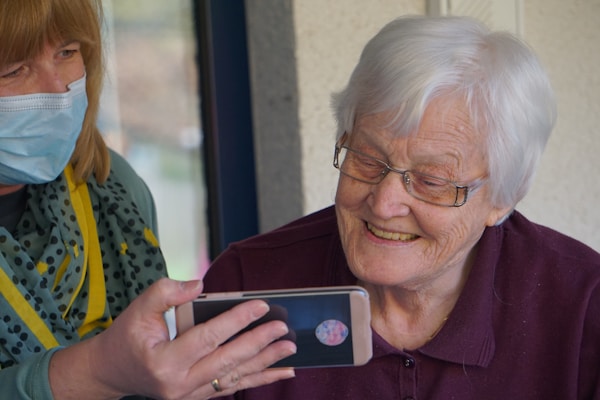Alzheimer’s disease is a progressive illness that affects the brain. It is the most common form of dementia, which is a general term for memory loss and other cognitive abilities that become severe enough to interfere with daily life.
When faced with an Alzheimer’s diagnosis, it can be difficult to know where to turn for information and support. While there is no one-size-fits-all approach to coping with Alzheimer’s, there are some key things you can do to make the journey a little bit easier. Here are some tips on how to continue to live your life when you have Alzheimer’s.
Research

You probably have a lot of questions about Alzheimer’s disease after being diagnosed, so it’s a good idea to conduct thorough research on the condition. To begin, you might want to research the specific Alzheimer’s disease stages that you can expect to go through as the disease progresses. In the early stages of Alzheimer’s disease, people may experience difficulty with short-term memory and have trouble finding words. They may also feel confused about time and place or have problems with balance and coordination. As the disease progresses, people may have more trouble remembering things from the past, including important personal information such as their address or phone number. They may also struggle with basic tasks such as bathing or dressing. In the later stages of Alzheimer’s disease, people may become completely reliant on others for care.
It is also important to be aware of the many different types of research that are being conducted on Alzheimer’s disease. Some research is aimed at finding new treatments for the disease while other research is focused on understanding the underlying causes of Alzheimer’s and developing ways to prevent it. You may want to consider participating in clinical trials if you are interested in helping to advance the understanding of Alzheimer’s disease.
Finally, it is important to be open to change. The approach you take to research when you are first diagnosed with Alzheimer’s disease may not be the same approach you take a few years down the road. As your disease progresses, you may find that you need to change the way you approach research in order to continue to find useful information and support. Be sure to communicate with your doctor and other health care professionals about any changes in your research needs or approach.
Assistance

As your disease progresses, you may have trouble completing certain tasks, such as cleaning, cooking, or even driving. If you need assistance with certain tasks, you may need to ask around or hire someone to help you out, such as a housekeeper to clean your house or a cook to make sure you get nutritious meals every day. Driving is often dangerous for patients with Alzheimer’s, so you may need to look into services that provide rides for seniors, such as Uber. The right assistance can help you maintain your independence for as long as possible.
Support Groups

Joining a support group or chat room can be extremely beneficial for those living with Alzheimer’s disease. These groups provide individuals with a sense of community, as well as a space to share their experiences and connect with others who understand what they are going through. Support groups also offer education and resources, which can be helpful in managing the disease. Chat rooms provide an online space where people can communicate with one another about their struggles and triumphs. This can be a great way to feel connected and supported when you are unable to attend in-person meetings.
It is okay to ask for help. Friends and family members are usually happy to offer whatever assistance they can. Take advantage of all the resources available to you, and don’t be afraid to reach out for support when you need it.

